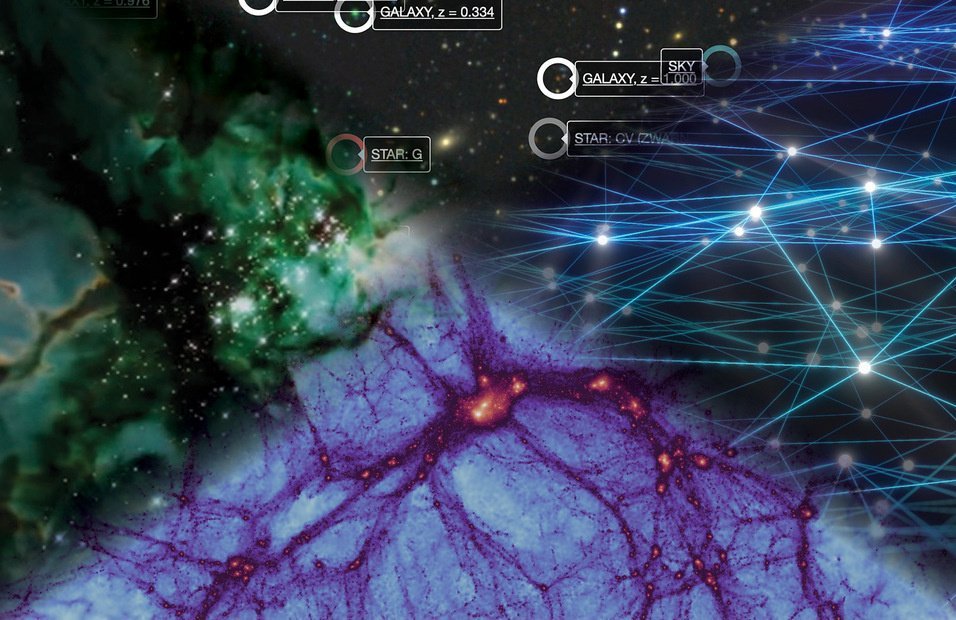
Upcoming events

SXSW 2026: Revolutionizing Astronomy with Next Generation Big Data
Massive datasets, like those in astronomy, are the lifeblood of AI innovation. The panel, led by researchers from the NSF-Simons AI Institute for Cosmic Origins, will discuss how AI is transforming astronomy to unlock new insights into the origins of our universe. They will present visualizations showing state-of-the-art astronomical datasets built on flagship observations and supercomputing simulations of the Universe. They will discuss how these data can be used to develop novel AI methods that accelerate discovery, expanding the frontiers of AI possibility inside and outside astronomy.
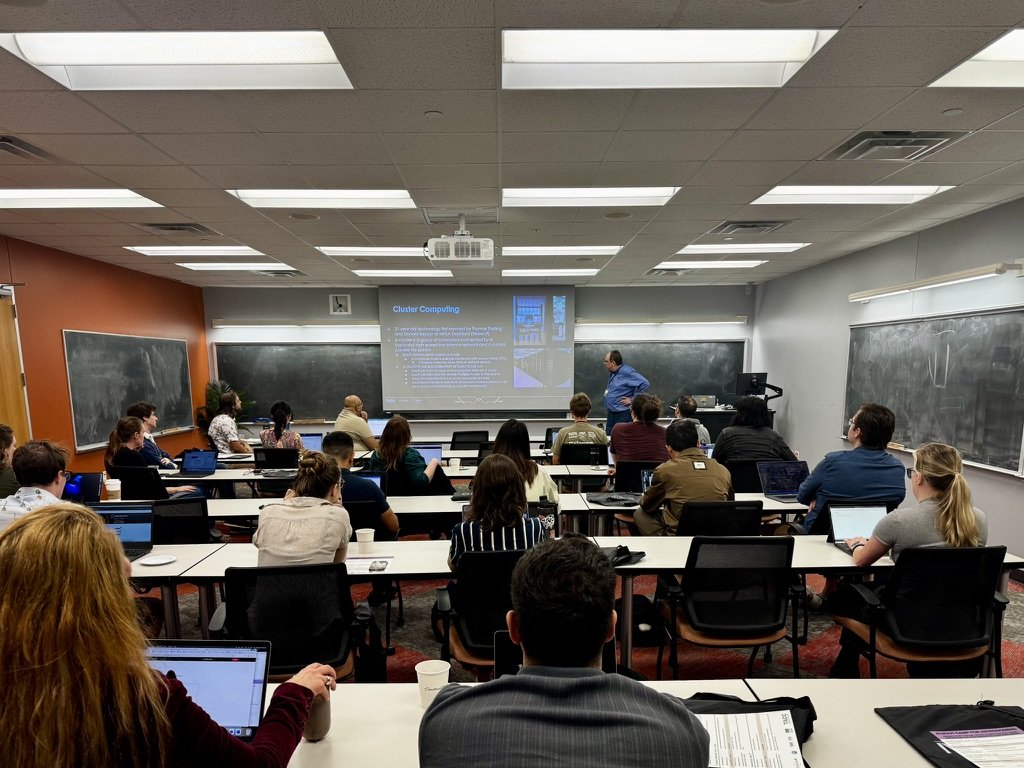
AI Boot Camp for Astronomers
Hands-on AI training for the next generation of astronomy research on June 1 - June 5, 2026, at Pickle Research Campus, University of Texas at Austin.
The AI Boot Camp For Astronomers is a weeklong, immersive training experience designed to help researchers build practical AI skills for astronomy.
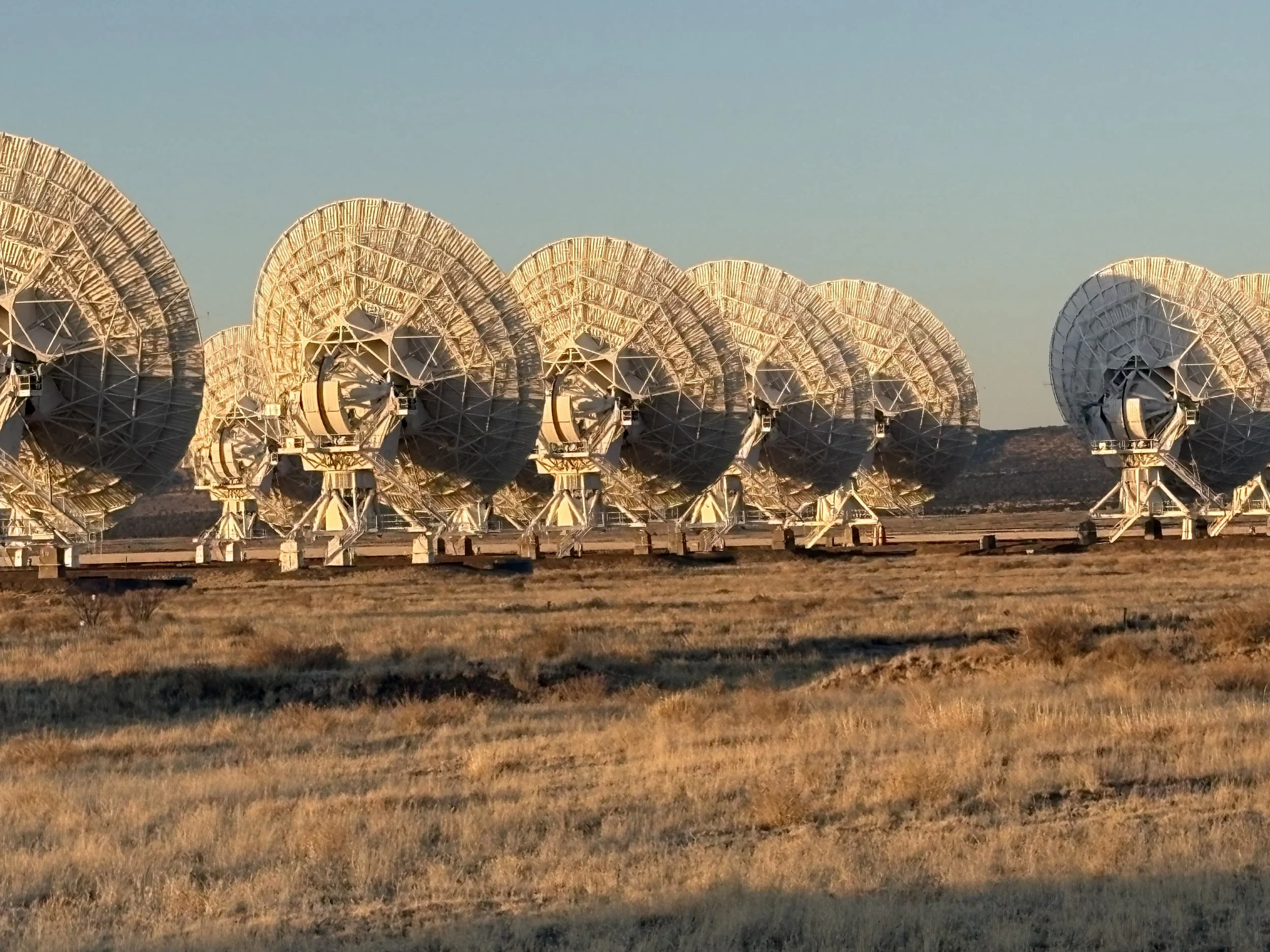
Cosmic Horizons 2026
The 2nd Annual NSF Simons AI Institute for Cosmic Origins Science Conference (Cosmic Horizons) will bring together researchers who are actively developing and applying AI/ML methods in astronomy.
The Conference will be held at Charlottesville, Virginia at The Virginia Guesthouse on July 13th-16th 2026.

CosmicAI & SkAI Special Session at the 247th AAS Meeting
CosmicAI & SkAI Special Session at the 247th AAS Meeting
2:00 PM - 3:30 PM MST
Tuesday, January 6, 2026.
Location: Phoenix, AZ.
Title: Advancing AI Infrastructure for Large Astronomy Datasets.
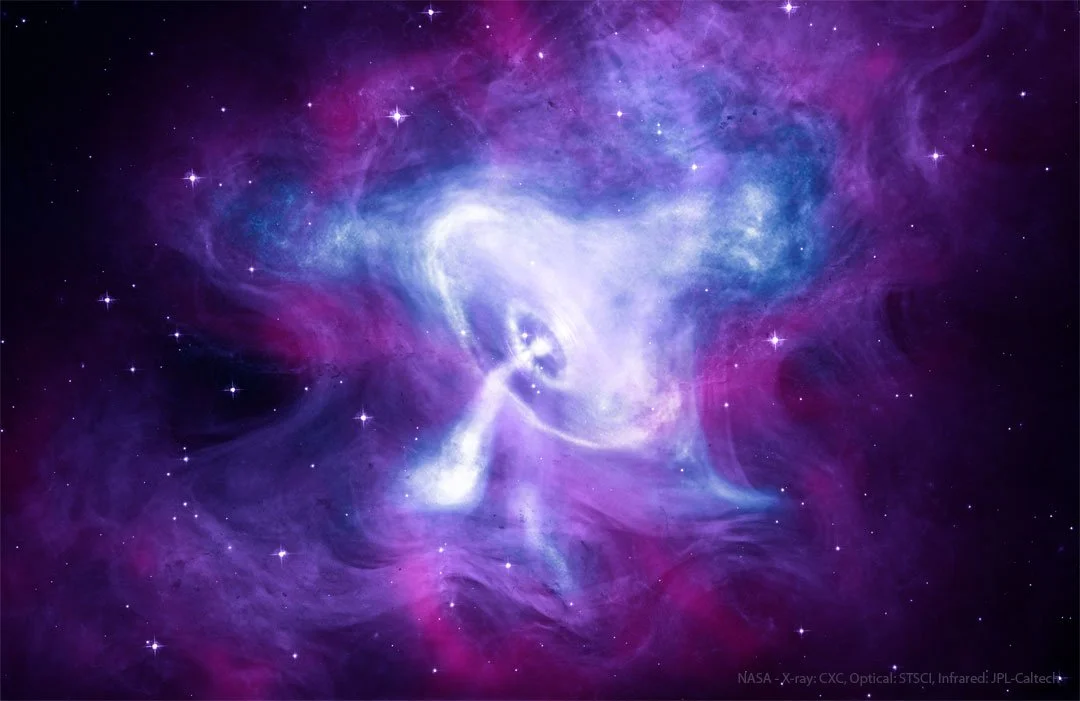
Fall 2025 CosmicAI Seminar Series Talk #7
Light Scattering of Irregular Grains with Neural Networks
Presenter: Zhé-Yǔ Daniel Lín
Towards AI-driven Radio Image Reconstruction
Presenter: Omkar Bait
You Might Also Like These Images: Unsupervised Affine-Transformation-Independent Representation Learning for the ALMA Science Archive
Presenter: Felix Stoehr
Time: Noon - 1:00 PM EST
Location: CV-230 at NRAO
Zoom: Click to Join
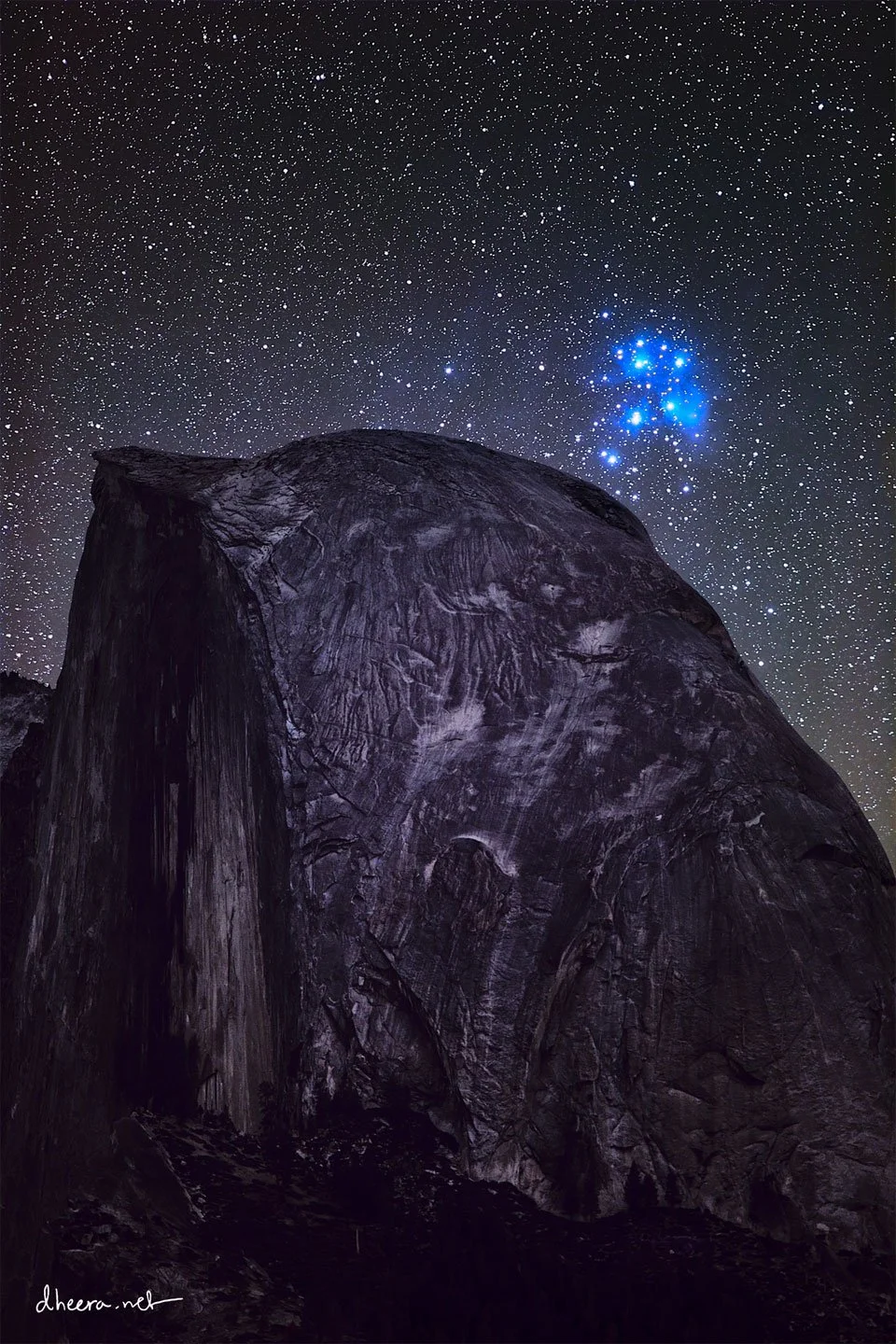
Fall 2025 CosmicAI Seminar Series Talk #6
DESI: Disentangling Cosmology from Observational Artifacts
Presenters: Kyle Dawson - Professor - Department of Physics and Astronomy (University of Utah) and Tyler Hagen, Ph.D. Candidate, University of Utah
11 AM CT / 12PM ET
Venue: Zoom and in person at the University of Utah (WEB 3780 - Evans Conference room in SCI)
Zoom: Click to Join
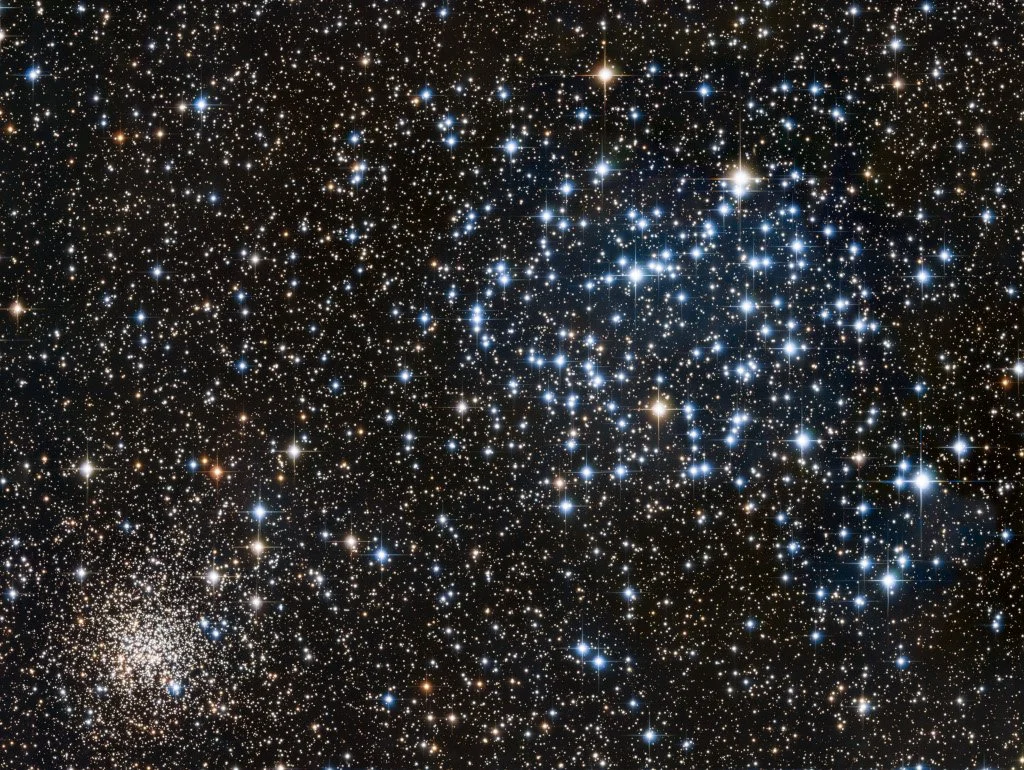
Fall 2025 CosmicAI Seminar Series Talk #5
Part 1:
Title: Finding Exotic Transients in the Era of Big Data
Speaker: Sebastian Gomez (Assistant Professor of Astronomy at The University of Texas at Austin)
Part 2:
Title: Time-Series Modeling of High-Resolution Radio Spectra
Speaker: Josh Taylor (Research Associate, Oden Institute)
Venue: UT Austin (POB 6.304) Breakfast tacos to be served!!
11 AM CT / 12PM ET
Part 1 Recording
Part 2 Recording
Part 1 Abstract: Time domain astronomy, or the study of the dynamic universe on human timescales, stands at the forefront of a revolution fueled by the advent of large surveys. We have recently experienced an unprecedented influx of observations that led to the discovery of exotic transients such as superluminous supernovae or tidal disruption events. The upcoming deployment of next-generation survey telescopes, such as the Vera C. Rubin Observatory and the Nancy Grace Roman Space Telescope, will increase our transient detection capabilities by two orders of magnitude. Developing machine learning techniques will prove to be not only useful, but necessary, to deal with the deluge of data we will obtain from these observatories, promising deeper insights into known cosmic phenomena and the exciting prospect of discovering entirely new classes of transients.
Part 2 Abstract: We present a modeling technique to characterize high-resolution radio spectra based on ARIMA (AutoRegressive Integrated Moving Average) modeling from statistical time series analysis. ARIMA isolates the dependence of a spectrum's shape upon both its signal and structured noise components, making fewer assumptions about a spectrum's velocity structure than standard Gaussian component fitting, and is intended to serve as a complement to the latter. Structural dependence modeling can: improve summary moment calculations, provide alternative approaches to signal noise estimation (which can be modeled channel-wise if desired), and help characterize the provenance of any observed structure in a cube's spectra (as signal, structured noise, or white noise). ARIMA modeling is computationally lightweight, backed by statistical theory and, as a first step to an analytical pipeline, can inform further downstream tasks such as identifying when Gaussian component fitting is appropriate.
Speaker Bios
Sebastian Gomez: Since August 2025, I have been an Assistant Professor of Astronomy at The University of Texas at Austin. Previously, I was a Clay postdoctoral fellow at the Center for Astrophysics | Harvard & Smithsonian and an STScI postdoctoral fellow at the Space Telescope Science Institute, where I split my time working with exotic transients with the Transients Science @ Space Telescope group and the Roman Space Telescope. I graduated with a PhD in Astronomy & Astrophysics in 2021 from Harvard University, where I worked with the Berger Time Domain Group on the discovery and classification of exotic supernovae, particularly on the optical study of superluminous supernovae and tidal disruption events, as well as machine learning techniques to find these objects more efficiently. I am originally from Ciudad Juárez, México. I attended college nearby at The University of Texas at El Paso and finished with a degree in Physics in 2015. While at UTEP I focused on the study of X-ray binaries, especially on the discovery of new galactic black hole X-ray binaries. In my spare time I like to do archery and photography.
Josh Taylor is a Research Associate in the Oden Institute for Computational Engineering and Sciences at The University of Texas at Austin. His research advances unsupervised machine learning methods for use in unbiased, data-driven exploratory, summary, and inferential analysis of astrophysical data; in particular, of data arising from observations and simulations of the star formation process. Dr. Taylor received his PhD in statistics from Rice University.
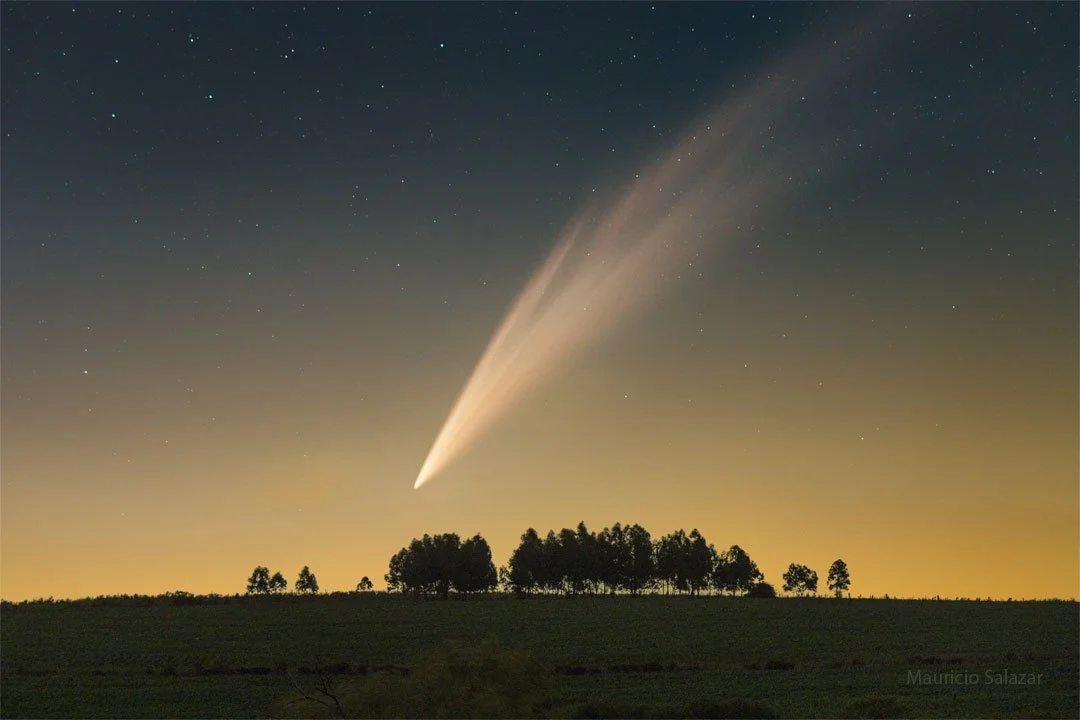
Fall 2025 CosmicAI Seminar Series Talk #4 - Encoding of Spectra and Time Series and Strategies for variance reduction in spectral unmixing
Part 1:
Title: Encoding of Spectra and Time Series
Speaker: Peter Melchior (Assistant Professor of Statistical Astronomy, Princeton University)
Part 2:
Title: Strategies for variance reduction in spectral unmixing Speaker: Jordan Bryan (Assistant Professor of Data Science, UVA)
Venue: Room 201 of UVA's Astronomy Building (530 McCormick Rd.)
Pizza will be served!
11 AM CT / 12PM ET
Part 1 Recording Link here
Part 2 Recording Link here
Subscribe to the CosmicAI Calendar
Part 1 Abstract: Ongoing and future surveys will surprise us, but only if our methods have the speed and flexibility to take advantage of vast quantities of data. I will present a neural network architecture that is specifically designed for galaxy spectra at variable redshifts. It is trained with an invariance-promoting loss function and can create superresolution reconstructions and infer the physical properties of galaxies with few-shot learning. The representations of optical spectra provide accurate prediction of IR photometry, a connection that is not captured by current physical spectrum modeling methods. I will discuss extensions of this work to exoplanet and quasar spectra to demonstrate the strengths and versatility of this approach.
A very similar encoder-decoder architecture can be taken for the modeling of time series, but I will add another component: a Latent ODE model describes temporal evolution as the solution of a differential equation, which is discovered from the data. I will demonstrate the use of this method for exoplanet detection and what it reveals about the training dynamics of deep neural networks.
Part 2 Abstract: Spectral data arise in many scientific fields including biology, environmental monitoring, and astronomy. Physical laws and simplifying statistical assumptions motivate the idea that a mixed spectrum is approximately a linear combination of several constituent spectra. In the problems we consider, the constituent spectra are derived from chemical components with known labels, while the non-negative weights of the linear combination represent the abundance of these chemicals in the mixture. In this context, we propose strategies for using a dictionary of labeled spectra to estimate the abundance weights. The estimates we propose leverage statistical characteristics of spectral data in order to achieve lower variance than standard alternatives. We illustrate the use of these estimates on fluorescence spectroscopy measurements for water quality monitoring. Finally, we discuss the limitations of our approach as well as outstanding statistical questions, particularly as they relate to applications in astronomy such as quasar absorption line spectroscopy.
Bios:
Prof. Peter Melchior leads the Princeton Astro Data Lab, which develops new algorithms to solve problems that hold back astronomy. His group seeks to optimally extract information about astrophysical processes with novel techniques that combine physics principles with deep learning. He creates methods for signal separation, data fusion, fast inference, and outlier detection for large astronomical surveys, and is funded by NSF, NASA, the Keck Foundation, and the Schmidt Sciences Foundation.
Jordan Bryan is a statistician with broad expertise in multivariate data analysis. He has studied and developed statistical methods in the fields of environmental monitoring, high-energy physics, and cancer genomics. His research interests include Bayesian statistics, robust estimation, and information-assisted hypothesis testing.
Prior to joining the faculty at UVA, he was a postdoctoral researcher at the University of North Carolina at Chapel Hill, where he was supported by training grants from the National Institute of Environmental Health Sciences (NIEHS) and the National Heart Lung and Blood Institute (NHLBI). He also worked as an associate computational biologist at the Broad Institute of MIT and Harvard. As of January 2024, he is the Secretary of the junior section of the International Society for Bayesian Analysis. He received his Ph.D. in Statistics from Duke University in 2023.
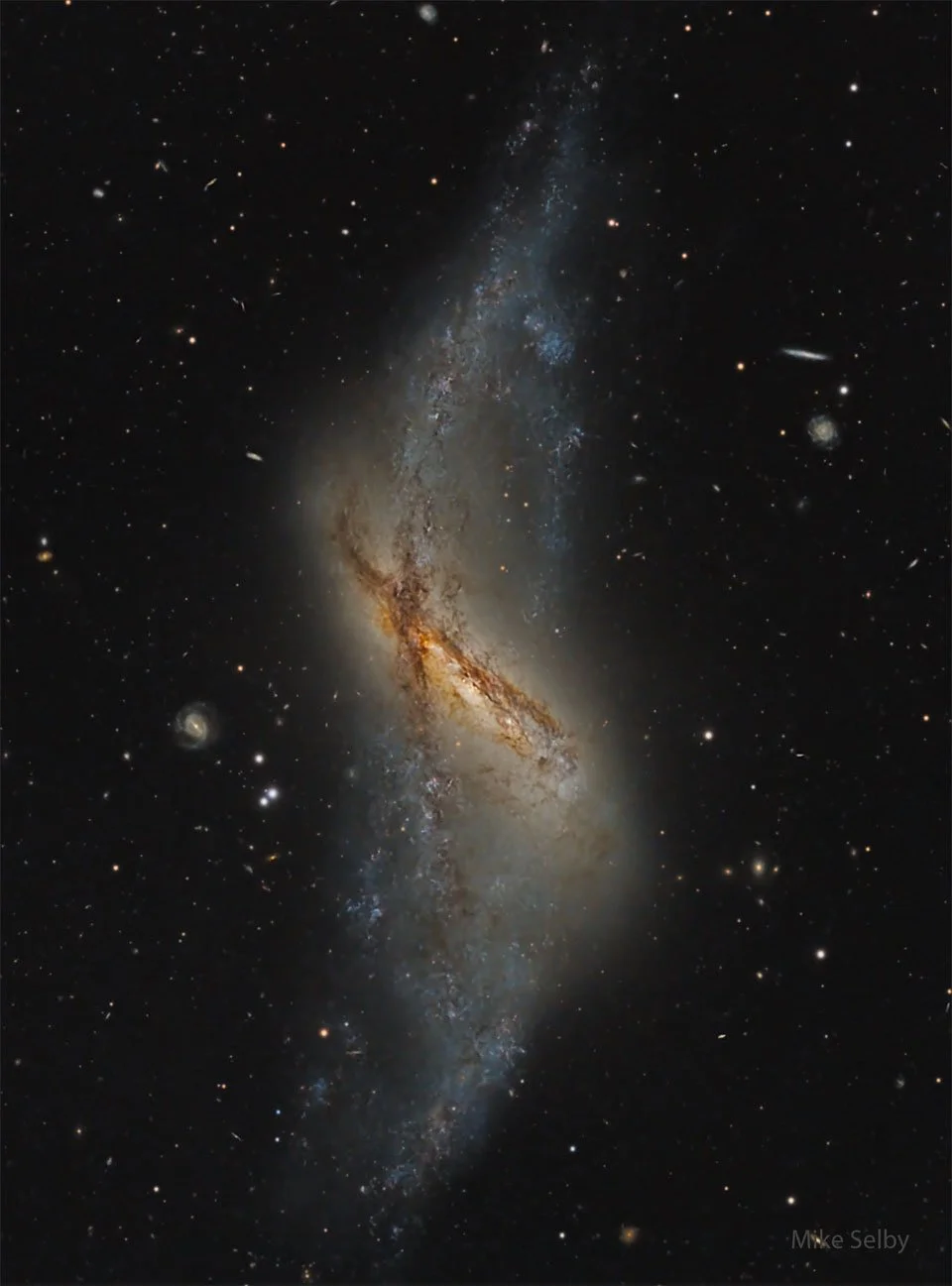
Fall 2025 CosmicAI Seminar Series Talk #3 - Machine Learning for Reviewer-Proposal Matching in ALMA Distributed Peer Review and Compound AI Systems: How Publisher AI Helps Researchers
Part 1:
Title: Machine Learning for Reviewer-Proposal Matching in ALMA Distributed Peer Review
Presenter: John Carpenter (ALMA Observatory Scientist)
Part 2:
Title: Compound AI Systems: How Publisher AI Helps Researchers
Presenter: Dustin Smith (Co-founder and CEO, hum.works)
11 AM CT / 12PM ET
Watch the recording here
Venue: NRAO (ER-230)
Pizza will be served!
Subscribe to the CosmicAI Calendar
Part 1 Abstract
We developed a machine learning framework to improve reviewer-proposal assignments in ALMA’s distributed peer review system. By using topic models trained on past proposals, we can represent both proposals and reviewer expertise in the same space, measure their similarity, and optimize assignments with the PeerReview4All algorithm. This approach has led to better matches, more reviewers identifying themselves as experts, and the removal of manual reassignments. In this talk, I will outline the method, highlight performance results, and discuss possible next steps.
Part 2 Abstract
Scholarly communication still runs on workflows built for 1999. They’re costly, slow, and brittle.
I’ll share what we’ve learned building publisher specific AI systems: where generic chatbots fail in editorial contexts, and what purpose-built systems embedded in manuscript and peer-review workflows can do today. We’ll walk through AI triage that flags scope/rigor issues and journal fit in minutes; citation/figure checks that catch problems early; and reviewer discovery that explains “why this reviewer.”
I’ll discuss how these capabilities shorten time-to-first-decision, reduce manual error, and improve the experience of editors, reviewers, and authors.
Speaker Bios
John Carpenter obtained his Bachelor’s degree in Astronomy from the University of Wisconsin–Madison and his PhD from the University of Massachusetts–Amherst. He was a JCMT Fellow at the University of Hawai‘i before joining Caltech’s Owens Valley Radio Observatory, where he contributed to the formation of the CARMA interferometer and eventually served as Executive Director. Since 2015, he has been the Observatory Scientist at the Joint ALMA Observatory in Chile, overseeing the proposal review process. His research centers on the formation and evolution of protoplanetary disks, particularly through submillimeter observations with ALMA.
Dustin Smith is Co-Founder & CEO of Hum, which builds AI systems used by leading publishers like Oxford University Press (MNRAS), Institute of Physics Publishing (ApJ), and IEEE (IEEE Access). His team ships taxonomy, engagement, and peer-review tooling that plugs into publishing platforms to improve efficiency, personalization, and discovery at scale.

Special Hybrid CosmicAI Seminar - Learning from simulations using ML/AI tools with Viviana Acquaviva
Title: Learning from simulations using ML/AI tools
Presenter: Viviana Acquaviva (Professor of physics at the City University of New York)
Zoom https://us06web.zoom.us/j/92063302735
Venue: University of Texas, PMA 15.216B
Abstract: Recent developments in machine learning and AI have given us a new set of tools to answer science questions, while creating new challenges in terms of trust and interpretability. My research focuses on the process of learning from simulations using these tools. I will show a few examples from my Astrophysics work, on validating cosmological simulations and formulating hypotheses for the physical model that drives galaxy evolution processes. I will then move on to current research in climate science, where we are developing custom metrics to assess similarity in climate models outputs, and using representation learning to reconstruct full spatiotemporal fields from sparse and biased ocean data. I will conclude with some lessons learned in applying AI across disciplines, and some considerations and open questions on how AI is changing the way we do science.
Speaker Bio: Dr. Acquaviva is a Professor of Physics at the City University of New York. She received her Master’s degree in Theoretical Physics from the University of Pisa and her PhD in Astrophysics from the International School for Advanced Studies in Trieste, and held postdoctoral positions at Princeton University and Rutgers University before joining the faculty at CUNY. After many years of research in Astrophysics with statistical tools, machine learning, and AI, she pivoted to Climate Data Science thanks to a PIVOT fellowship, followed by a PIVOT Research Award, by the Simons Foundation. Her current research focuses on developing new metrics to evaluate the performance of global climate models and on reconstructing full spatiotemporal fields, particularly ocean carbon, from limited and biased data. She is also reflecting on how scientists can foster a more responsible AI revolution and how principles of ethical AI can be translated into an actionable framework for scientists. Her textbook “Machine Learning for Physics and Astronomy”, published in 2023 by Princeton University Press, won the 2024 Chambliss Astronomical Writing award from the American Astronomical Society.
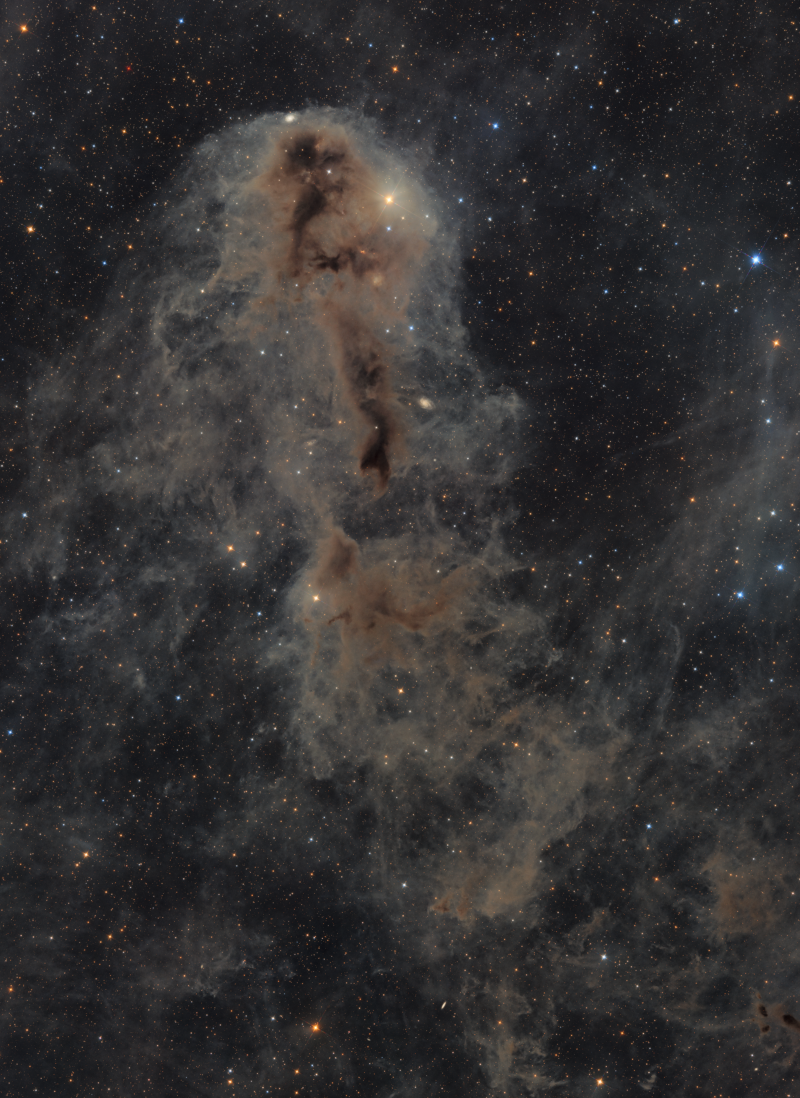
Fall 2025 CosmicAI Seminar Series Talk #2 - Accelerating (Astro)chemical discovery with machine learned atomistic models and Computer Vision for Scientific Discovery
Part 1
Title: Accelerating (Astro)chemical discovery with machine learned atomistic models and Computer Vision for Scientific Discovery
Presenter: Kelvin Lee, Senior Scientific Machine Learning Engineer at NVIDIA
Part 2
Title: Computer Vision for Scientific Discovery
Presenter: Zezhou Cheng, Tenure-track assistant professor in the Department of Computer Science at the University of Virginia
Subscribe to the CosmicAI Events Calendar in Google Calendar
11 AM CT / 12PM ET
Venue: In person at NRAO
Zoom https://utexas.zoom.us/j/87159746528?pwd=ouQu8lN9ARbb6aRFpvdf6Ddb1Oqa8B.1
Meeting ID: 871 5974 6528 | Passcode: 996082
Join by SIP: 87159746528@zoomcrc.com
Part 1 Abstract: Among the many rapidly developing and expanding fields in AI/ML, applications to atomistic modeling are perhaps one of the most exciting, owing to advances in model architectures and the growing availability of large-scale datasets. Perhaps most exemplary of these capabilities are those used in biomolecular modeling, such as those from the AlphaFold/RoseTTAFold families, which were awarded the 2024 Nobel Prize in Chemistry. These models feature a host of capabilities, including the ability to respect Euclidean symmetries.
While it may not have received nearly as much public attention, the same modeling principles are invariant to translation when applied outside the life sciences, namely in the chemical and materials sciences. In this talk, I will discuss some of the recent advances in the design of machine learned interatomic potentials, how they're trained, and their capabilities and applications in fully atomistic simulations. In the final part of my talk, I will also discuss some potential use cases where the same models can potentially be used to drive astrochemical and observational/spectroscopic discovery.
Part 2 Abstract: Artificial intelligence has recently made remarkable contributions across scientific fields. Within AI, computer vision—focused on enabling machines to see and interpret the 3D visual world—has become a key driver of progress. In this talk, I will first highlight our efforts in applying computer vision to pressing challenges in climate change and materials discovery. I will then present our advances in 3D reconstruction and scene understanding, a core task in computer vision. Finally, I will discuss the broader potential of these techniques to accelerate discovery in astronomy and beyond.
Speaker Bios:
Kelvin is currently a Senior Scientific Machine Learning engineer at NVIDIA, where he works on developing high-performance AI workflows to the chemical and physical sciences. Kelvin completed his PhD on laser-induced reaction dynamics in 2017 at the University of New South Wales in Sydney, Australia, under the guidance of Drs. Scott Kable and Meredith Jordan. Afterwards, he held postdoctoral research positions at the Center for Astrophysics | Harvard & Smithsonian (2017 - 2020), working with Dr. Michael McCarthy, and MIT Chemistry (2020 - 2021), working with Dr. Brett McGuire on problems ranging from high-resolution molecular spectroscopy, to automated analysis of astronomical spectra to machine learning for unknown molecule identification. Kelvin is the proud father of two cats, lives in the beautiful Pacific Northwest, and lists hiking and sim racing as his hobbies.
Zezhou is a tenure-track assistant professor in the Department of Computer Science at the University of Virginia, leading the Computer Vision Lab. Before joining UVA, Zezhou was a Postdoctoral Researcher at Caltech, advised by Georgia Gkioxari. Zezhou obtained their Ph.D. in Computer Science at UMass Amherst in 2023, where I was co-advised by Subhransu Maji and Daniel Sheldon. I received my Bachelor's degree at Sichuan University in China in 2015. During my undergraduate studies, I worked with Qingxiong Yang and Bin Sheng at Shanghai Jiao Tong University.
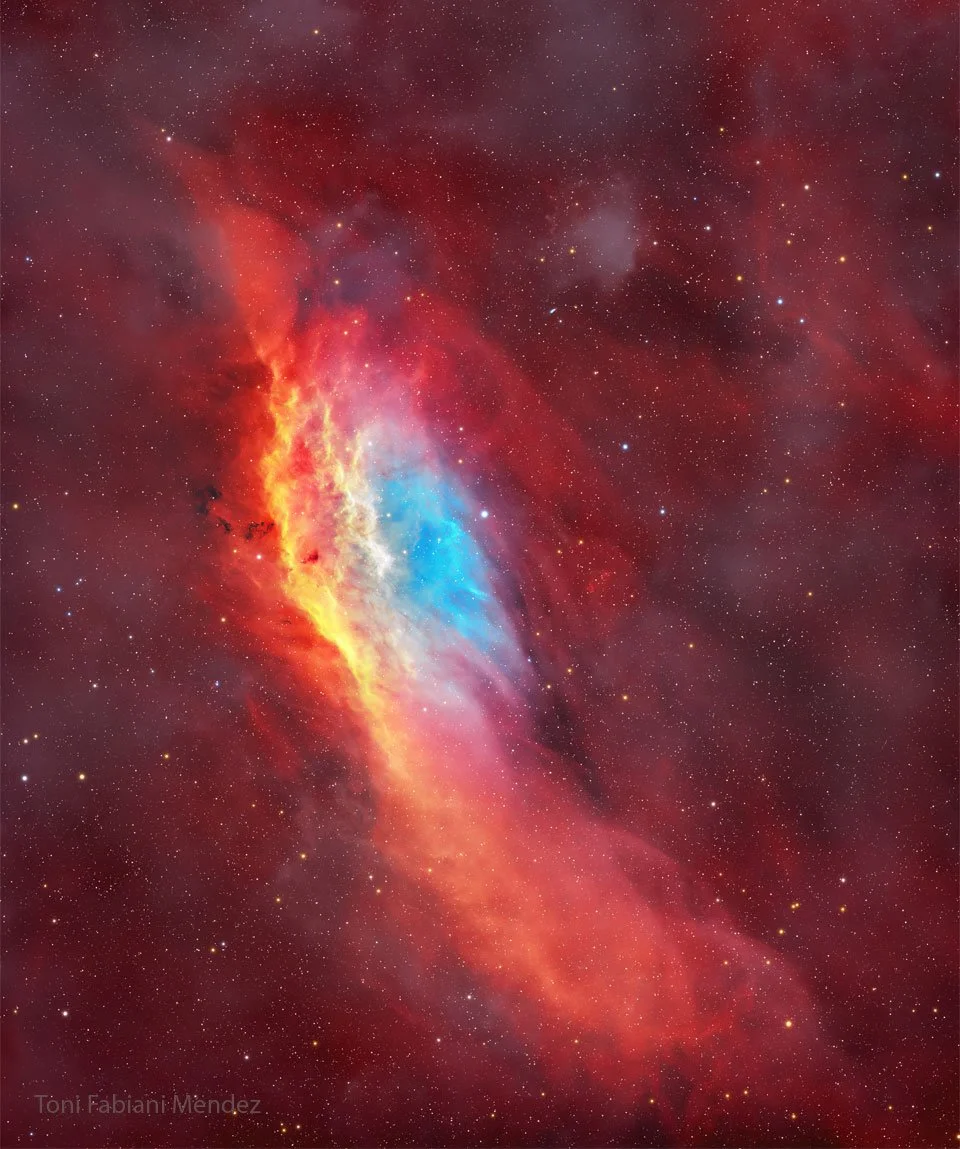
Fall 2025 CosmicAI Seminar Series - Talk #1
The Fall CosmicAI seminar series will be held bi-weekly on Wednesdays at 11 AM CT/12PM ET.
Seminar #1
Title: Imaging in Radio Interferometry - What do we measure, model and make decisions about?
Presenter: Urvashi Rau(NRAO)
Talk recording here
11 AM CT / 12PM ET
Venue: Zoom and in person at NRAO (ER230)
Pizza will be served!
Abstract: In this talk, I will summarize the signal acquisition, data processing, and image analysis steps encountered in radio interferometry. Along the way, I will highlight what it is that we measure, model, infer and make decisions and educated guesses about as we transform large volumes of raw data into results ready for astrophysical interpretation. The goal is to give colleagues unfamiliar with radio interferometric techniques a clear foundation, so that opportunities for applying new ML/AI methods become easier to recognize. I will finish by summarizing current ML/AI research in the radio interferometry community and how it fits into this framework.
Speaker Bio: An algorithm scientist with 20+ years of experience in image reconstruction techniques and data analysis software for radio interferometry. Technical specializations are in wide-band and wide-field imaging, interference mitigation, imaging with radar systems, and automation of scientific analysis workflows. An area of particular interest is the technical synergy between imaging techniques in radio astronomy, medical imaging and radar applications and opportunities for cross-pollination of ideas. (History : undergraduate and graduate degrees in Physics and Computer Science, and employed on the NRAO scientific staff since 2010)


May 5-9: AI Bootcamp For Astronomers
The boot camp will be held May 5-9 at the University of Texas at Austin. The boot camp aims to provide a broad overview of AI methods and use hands-on exercises to prepare students to apply AI methods to scientific applications in a high performance computing environment. This boot camp has a special focus on challenges in the domain of astronomy/astrophysics.
Please note that attending this boot camp assumes you have a basic proficiency in Python and have an interest in astronomy data and/or astronomy applications.
Participants are expected to attend all five days of the boot camp.
Bootcamp participants will join the conference at 4pm Tuesday-Thursday for highlighted talks.
Registration
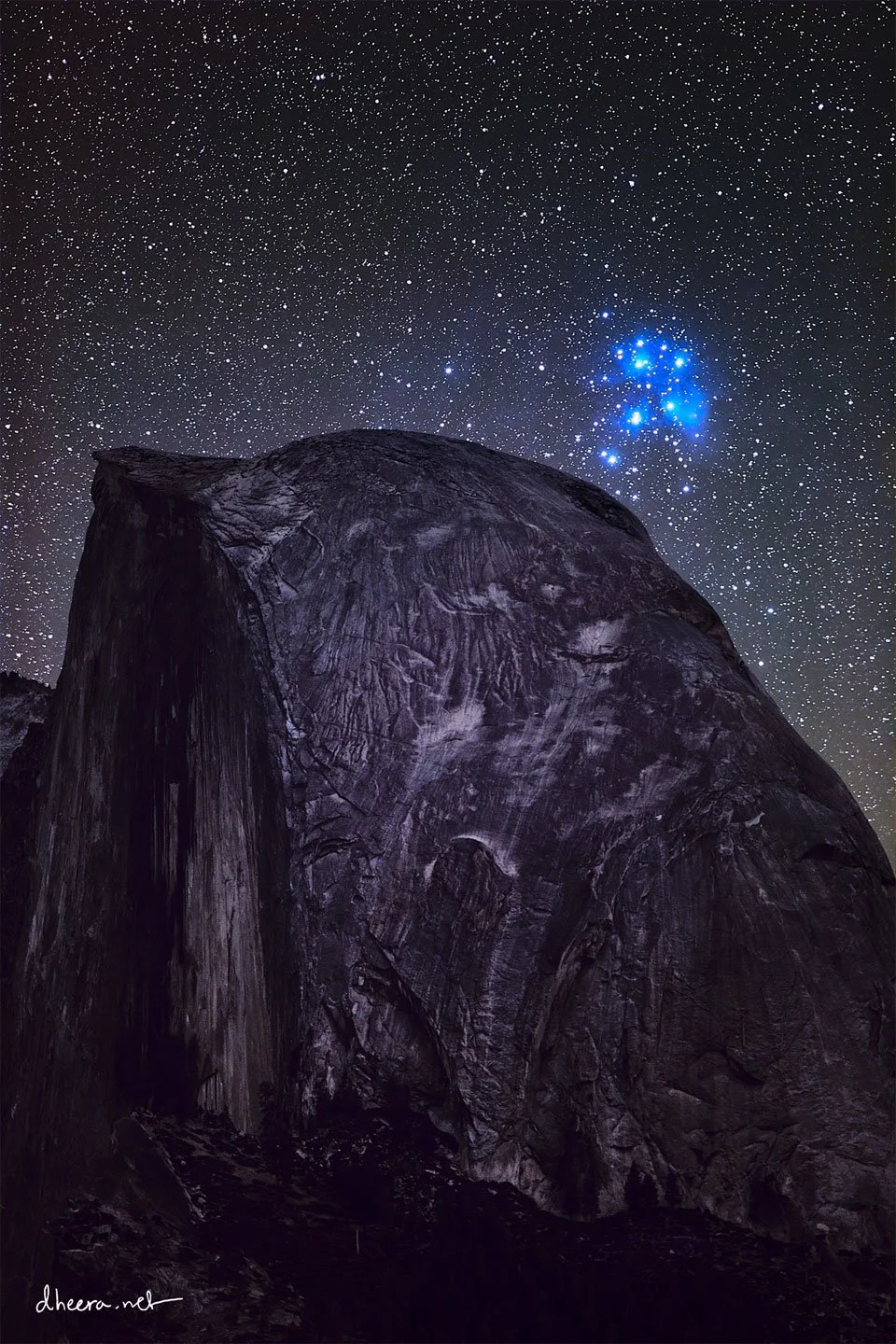
Hybrid Seminar - Exploring the LLM universe for astronomy research
CosmicAI Hybrid Seminar Series
Title: Exploring the LLM universe for astronomy research
Speaker: Dr. Jessy Li and Sebastian Joseph
Date: Wednesday, April 23rd 2025
Time: 1:00 PM CST
Venue: PMA 15.216B at UT Austin
Abstract: From ChatGPT to Deep Research, the pace of foundation models of AI has generated much excitement as well as reckoning: what are LLMs capable of? What are their limitations? How far can we push for AI models for research? One of the core missions of the Explorable Universe group within CosmicAI is to explore these questions for code LLMs.
In this talk, we will first present a primer that explains how LLMs are trained, especially within the context of our own code LLM training experience, thereby scoping the capabilities of these models. Next, we discuss our recent efforts to build a new coding benchmark that tests the limitations of LLMs, focusing on code execution and visualizations.
Speaker Bios
Jessy Li is an associate professor of Natural Language Processing and Computational Linguistics in the Department of Linguistics at UT Austin. She is the AI lead of the Explorable Universe group in CosmicAI.
Sebastian Joseph is a first-year Ph.D. student in Computer Science at UT Austin, advised by Prof. Jessy Li. His research focuses on making large language models more factual, understandable, and adaptable for expert domains.
Watch the recording here

Hybrid Seminar -Transcending the Limits of Astrostatistics with Machine Learning Methods
CosmicAI Hybrid Seminar Series
Title: Transcending the Limits of Astrostatistics with Machine Learning Methods
Speaker: Yuan-Sen Ting, Associate Professor at Ohio State | Adjunct Scientist at Max Planck Institute
Date: Wednesday, April 9 2025
Time: 1:00 PM CST
Venue: PMA 15.216B at UT Austin
Abstract:
Recent advancements in astronomical instrumentation have led to an unprecedented influx of data, revolutionizing the field of astronomy. However, the inherent complexity and multi-dimensionality of astronomical observations, ranging from intricate imaging of weak lensing, reionization, and protoplanetary disks to the comprehensive analysis of galaxy mergers across cosmic history, pose significant challenges to traditional astrostatistical methods.
In this colloquium, I will discuss two distinct machine learning approaches aimed at tackling these complex astronomical systems. First, I will explore the Mathematics of Information, focusing on how machine learning can optimize information compression and extract higher-order moments in stochastic processes.
Second, I will introduce a Generative AI paradigm, demonstrating how generative models, such as normalizing flows and diffusion models, enable precise modeling of astronomical datasets, facilitating accurate inferences on intricate astronomical systems. By leveraging these cutting-edge machine learning techniques, we can transcend the limitations of conventional astrostatistics, furthering making robust inferences on complex astronomical systems.
Speaker Bio
Yuan-Sen is an Associate Professor of Astronomy at Ohio State University and an Adjunct Scientist at the Max Planck Institute for Astronomy. He earned his Ph.D. in Astrophysics and Astronomy from Harvard and has held prestigious fellowships, including the NASA Hubble and Carnegie-Princeton Fellowships. His research leverages deep learning and AI for astrophysical data modeling, resulting in over 200 publications and a Nature cover story. Passionate about science outreach, he has organized major astronomy conferences in Malaysia, written for leading newspapers, and created popular TED-Ed videos.
Recording link here
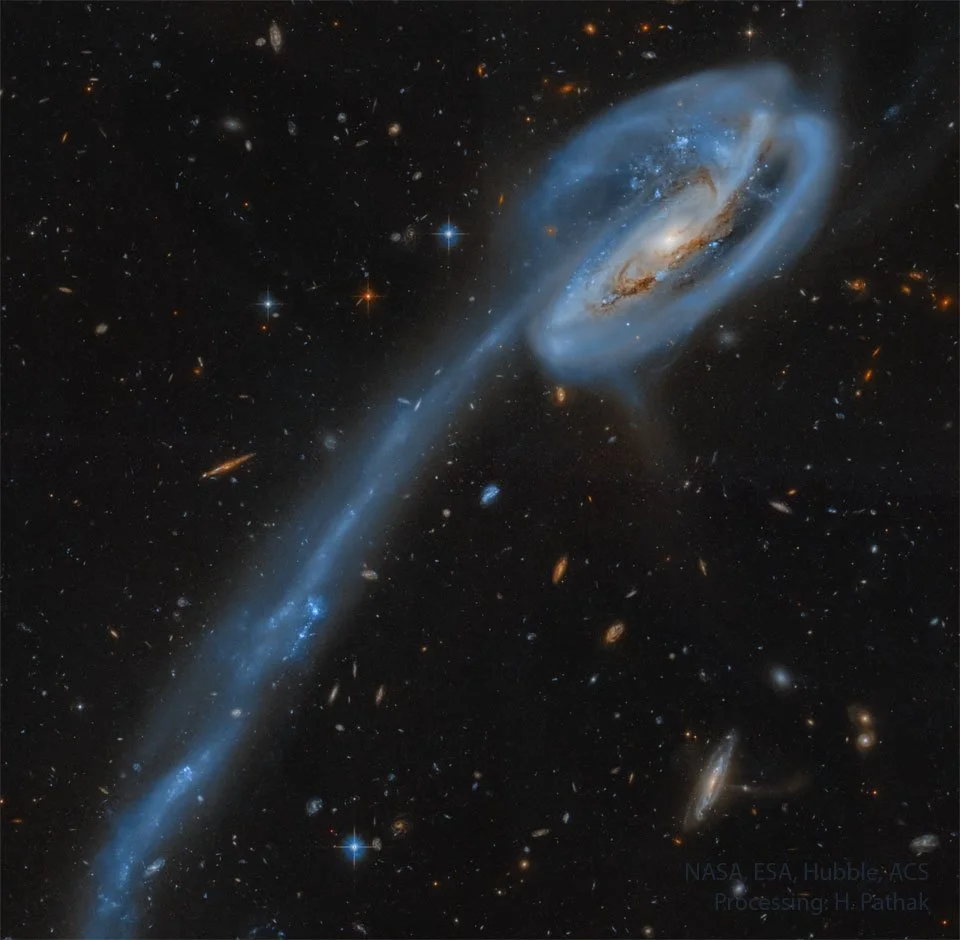
Hybrid Seminar - Structure-preserving, Low-Parameter, Interpretable, Operator Learning for Surrogate Modeling
CosmicAI Hybrid Seminar Series
Title: Structure-preserving, Low-Parameter, Interpretable, Operator Learning for Surrogate Modeling
Speaker: Varun Shankar, Assistant Professor in the Kahlert School of Computing at the University of Utah
Date: March 26th, 2025
Time: 12pm MST (1 pm CST)
Venue: WEB 3780 | Evans Conference Room
Abstract: Scientific machine learning (SciML) is a relatively new scientific discipline that weds scientific computing and high-performance computing with carefully designed machine learning (ML) techniques. In the context of astrophysics, SciML has been applied to galaxy classification and identification, outlier detection, and uncertainty quantification.
Within SciML, operator learning is a rapidly emerging and powerful new paradigm for surrogate modeling across engineering and the sciences, with recent successes in climate modeling, material design, and carbon sequestration problems (to name a few). In this talk, I will present a unified framework that encompasses many operator learning paradigms and use this to present three advancements in operator learning: (1) the Kernel Neural Operator (KNO), a generalization of the Fourier neural operator that allows for greater flexibility in kernel choices and local spatial adaptivity while inherently using far fewer trainable parameters; (2) the ensemble DeepONet, a generalization to Deep Operator Networks that enables the incorporation of spatial adaptivity directly into a set of basis functions; and (3) a new operator learning paradigm based on kernel approximation that analytically preserves the divergence-free property and requires minimal training, all while achieving state-of-the-art performance on incompressible flow problems.
Based on these recent advances, I will argue that operator learning has the potential to positively impact astrophysics through trustworthy, rapid, and interpretable surrogate models for multiscale simulations of magnetohydrodynamics (MHD) and numerical general relativity (GR) and for inverse problems such as physical parameter estimation.
Watch the recording

Hybrid Seminar - Science with massive radio datasets enabled using AI/ML
CosmicAI Hybrid Seminar Series #4
Presenter: Dr. Mark Lacy, Scientist, National ALMA Science Center, at NRAO Charlottesville
Date: Wednesday, March 12, 2025
Time: 1:00 pm CST
Venue: NRAO ER-Auditorium
Link to seminar recording
Abstract: In common with other fields of astronomy, radio astronomy involves managing and analyzing large quantities of data. New and upcoming facilities such as the ALMA WSU and ngVLA will increase these data volumes and their complexity by 1-2 orders of magnitude. AI/ML methods can help in several ways during the process of going from an observing proposal to science. Language models can help sort thousands of proposals received for telescope time for review and setting up observations and processing pipelines. Numerically-based techniques can be used to assist with processing and analyzing the ~1-100TB datasets produced by current and future facilities.Last year (and restarting this year) we have been holding meetings at NRAO to discuss ways in which AI/ML can help with aspects of Observatory functions. This has been given new impetus by the award of the Cosmic AI Institute to a consortium including NRAO. In this talk I will summarize the outcomes of these meetings and present some of the ideas that arose from our discussions and some of the challenges that arise from using these techniques in an Observatory setting. I will also show some examples of AI/ML applied to radio astronomy data for both quality assurance and scientific purposes by ourselves and other groups working on data from the VLA Sky Survey.

Hybrid Seminar - Cosmological Emulators for High-Dimensional Inference
Presenter: Dr. Mahdi Qezlou, HETDEX-Cosmology Postdoctoral Fellow, University of Texas at Austin
Date: Wednesday, February 26, 2025
Time: 1:00 pm CST
Venue: POB 4.304
Zoom: https://utexas.zoom.us/j/96542873118
Meeting ID: 965 4287 3118
Passcode: 750886
One tap mobile +13462487799,,96542873118# US (Houston) +16694449171,,96542873118# US
Abstract:
Continuing the recent theme at the CosmicAI talks, I discuss “surrogate modeling” for inferring cosmological and astrophysical parameters with the help of machine learning. The available and upcoming observations require accurate simulations of the complex physical processes, including the non-linear gravity and gas dynamics. Using these detailed simulations at each Monte Carlo Markov Chain (MCMC) step in an inferential framework is computationally prohibitive. To overcome this, machine learning (surrogate) models can be trained to learn the map from the parameters of interest to the observables.
In particular, I will highlight a multi-fidelity Gaussian Process framework designed to maximize the constraining power on a high-dimensional input parameter space while minimizing the computational cost. I will also demonstrate how these emulators enable unprecedented accuracy in parameter inference, paving the way for robust scientific discoveries with current and future cosmological surveys.

Hybrid Seminar - Some advances in simulation-based inference: Calibration, aggregation, and model check
CosmicAI Hybrid Seminar Series
Title: Some advances in simulation-based inference: Calibration, aggregation, and model check
Presenter: Dr. Yuling Yao, Assistant Professor in the Department of Statistics and Data Sciences at the University of Texas at Austin. yulingyao.com.
Venue: POB 4.304 (UT Austin)
Join Zoom Meeting: utexas.zoom.us/j/95502700680 (Meeting ID: 955 0270 0680, Passcode: 745761)
Abstract:
Simulation is a powerful way to specify models in modern scientific computing, while the likelihood-free setting imposes challenges for inference and calibration. To start, I present a cosmology example of galaxy clustering analysis using simulation-based inference and normalizing flows. I present three recent advances in simulation-based inference:
(1) “discriminative calibration” develops a general classifier approach to check Bayesian computation including simulation-based inference and Markov chain Monte Carlo. The classifier performance is a consistent estimate of a family of divergence measures, including the classical classifier two-sample test as a special case.
(2) To incorporate posterior approximations from different inference algorithms or flow architectures and improve the final inference quality, I present “simulation-based stacking”, a general framework to combine probabilistic inferences.
(3) Yet even when the inference is perfect, the simulation model is often an approximation to the nature. I present “simulation-based posterior predictive check”, a framework to check if the simulation model does a good job of capturing relevant aspects of the data, such as means, standard deviations, and quantiles. This new predictive check p-value is ensured to be frequentist-calibrated under the null, making it particularly suitable for rigorously testing scientific hypothesis.
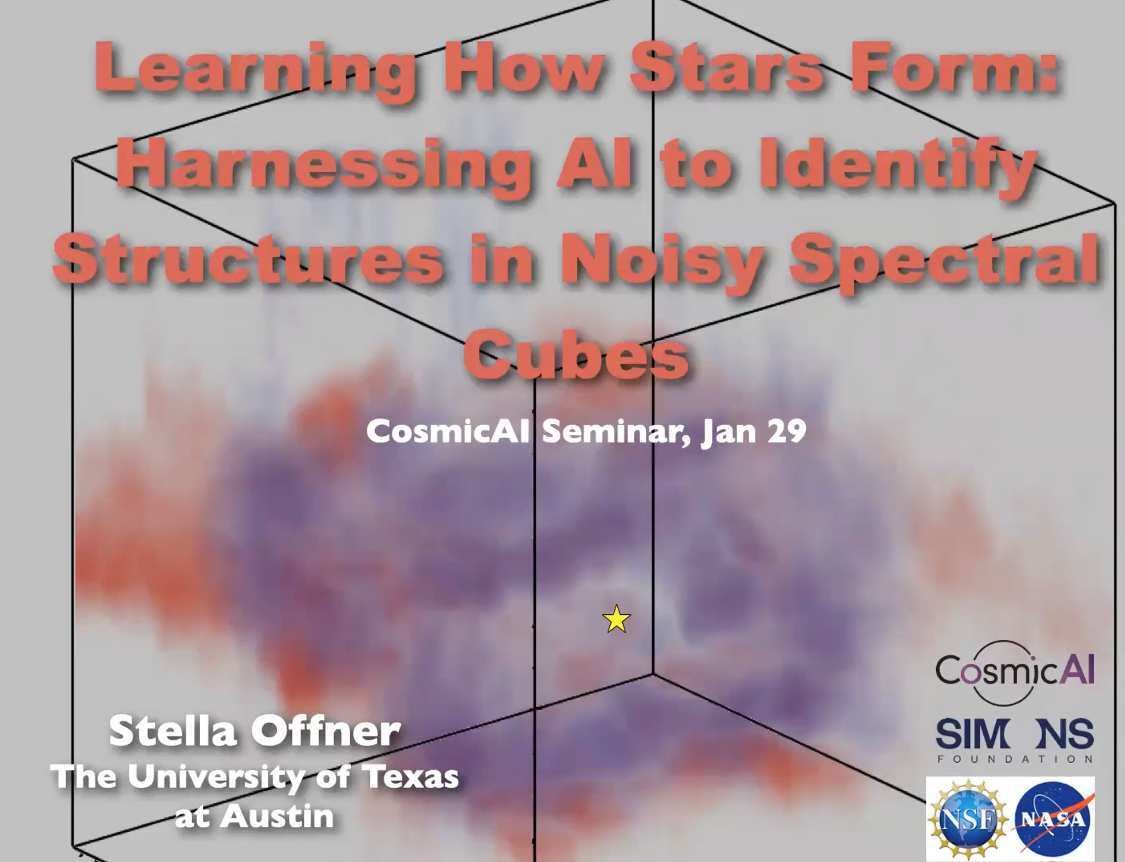
Hybrid Seminar: Learning how Stars Form: Harnessing AI to Identify Structures in Noisy Spectral Cubes.
Title: Learning how Stars Form: Harnessing AI to Identify Structures in Noisy Spectral Cubes.
Dr. Stella Offner and Dr. Josh Taylor
Abstract:
Star formation is messy! The process spans many orders of magnitude in scale and involves a variety of physical processes: gravity, magnetic fields, radiation, and turbulence. Young stars announce their presence by emitting radiation and ejecting high-velocity material, “stellar feedback,” which in turn shapes the surrounding natal environment.
Part 1: Stella will present the results from a 3-D convolutional neural network model, trained on full-physics numerical simulations, which can accurately identify stellar feedback features in molecular line spectral cubes. She will discuss the pros and cons of supervised approaches based on numerical simulations for data segmentation.
Part 2: Josh will present a new approach to identifying cohesive spectral structures in molecular line cubes. Multiview Prototype Embedding and Clustering (MPEC) is an integrated approach to simultaneously:
Learn prototypes of spectral data for efficient sample size reduction,
Embed these prototypes in a lower dimensional latent space generated by a Self-Organizing variant of UMAP, and
Cluster a graph representation of (learned) prototype similarity in both feature and latent spaces.
All facets of MPEC are self-parameterized, making it feasible for pipeline processing of spectral cubes. Josh will also discuss noisy cluster identification for spectral data using standard tools from statistical time series analysis.
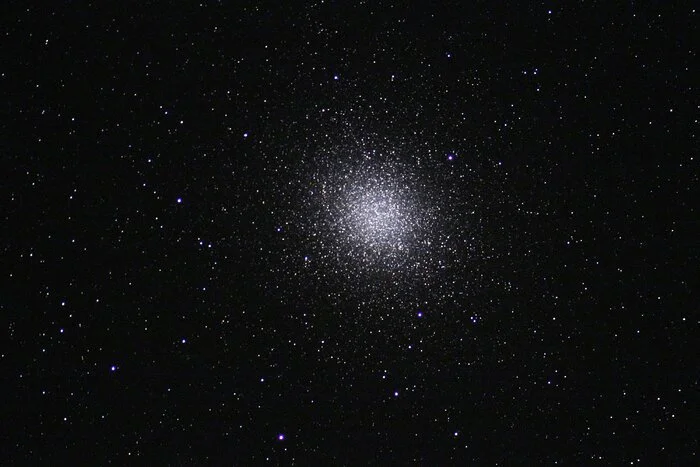
Wednesdays at 1pm CST: NSF-Simons CosmicAI Hybrid Seminar Series
This spring NSF-Simons AI Institute for Cosmic Origins (CosmicAI) is launching a new hybrid online/in-person seminar series for the community working at the intersection of AI and astronomy.
This seminar is intended to showcase research that is of broad interest and importance to AI developments in astrophysical research. This spring the primary in-person location will be at UT Austin, with some rotating guest seminars from researchers at other institutions.
Stella Offner, Director of NSF-Simons CosmicAI, and Josh Taylor will kick off the series on January 29: “Learning how Stars Form: Harnessing AI to Identify Structures in Noisy Spectral Cubes.”
Image Credit: KPNO/NOIRLab/NSF/AURA/Blythe Guvenen
Galactic Quest: An AI Mission to Decode the Cosmos
Discover how recent and near-future AI developments will be able to accelerate discoveries related to the Universe and address the most basic human question: Where do we come from? Go deep into the possibilities of the cosmos with expert astronomers, data scientists, and more.
Speakers: Arya Farahi, Josh Taylor, Matt Lease, and Stella Offner.
More details and RSVP here including transit and parking information.
Looking for more? Navigate to earlier months to see past events